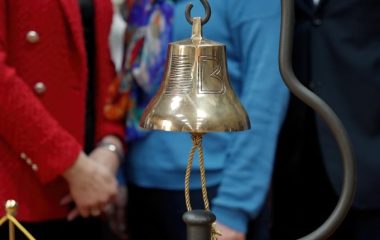
Photo: Pixabay/Daniel Bone
In a public call for premiums and for guaranteed purchase prices, or feed-in tariffs, the quota was 88 MW of installed renewable energy capacity, but incentives were approved for 25.5 MW.
In its first-ever auction for premiums and feed-in tariffs for small-scale renewables projects, Croatia had offered incentives for 50 MW of solar projects, 9 MW of small hydropower plants (SHHPs), 15 MW of biogas power plants, and 14 MW of biomass facilities. The largest share of the approved 25.5 MW quota went to solar power plants (13.4 MW), followed by biogas (7.7 MW).
The 88 MW that was on offer is part of a total quota of 2,265 MW envisaged by a government decree that introduced auctions for renewables premiums in May 2020.
In this first auction, premiums were available for biomass and biogas projects only, while feed-in tariffs were offered for all types of facilities. Prior to this public call, feed-in tariffs had been approved on a first come, first served basis until the quotas were used up. The next auction should refer to projects exceeding 2 MW, and, according to announcements, a public call is expected early this year.
One-third of bids were invalid
The Croatian Energy Market Operator (HROTE) received a total of 108 bids (14 for premiums and 93 for a guaranteed purchase price) for power plants with a total capacity of 41.5 MW, with one bid lacking details regarding capacity, according to a decision issued by HROTE.
57 of 71 selected bids were for solar facilities
Seven firms were granted market premiums, while 64 were approved a guaranteed purchase price. Of the remaining 37 bids, four were in order, but were not selected, while 33 were incomplete and were therefore disregarded.
Of the 71 winning bids, 57 referred to solar projects (ranging from 50 kW to 500 kW), and five each to biomass power plants (from 50 kW to 2 MW) and biogas facilities (from 500 kW to 2 MW).
Subsidies for solar were granted, for example, to firms which develop renewable energy projects, but also to farms, car repair shops, and packaging manufacturers.
Bids were within price ceilings set in the public call
The public call set price ceilings for all types of power plants, both for premiums and feed-in tariffs. The lowest ceiling was for solar projects, at EUR 0.084 per kWh, while the highest one was for biomass power plants, at EUR 0.178 per kWh.
Premiums were approved for two biomass power plants and five biogas plants with a capacity of between 500 kW and 2 MW. The owners of these facilities will sign 12-year contracts based on the price they offered, which is close to the maximum allowed price. After that, HROTE will be obliged to calculate the average market price every month and pay a premium in the amount equal to the difference between the average market price and the contracted price.
When it comes to guaranteed purchase prices, the winning bids did not differ much from these values, except in the case of solar, where the average approved price was EUR 0.076 per kWh and the maximum price was EUR 0.083 per kWh. The contracts for feed-in tariffs will also be signed in 12 years.


















Be the first one to comment on this article.